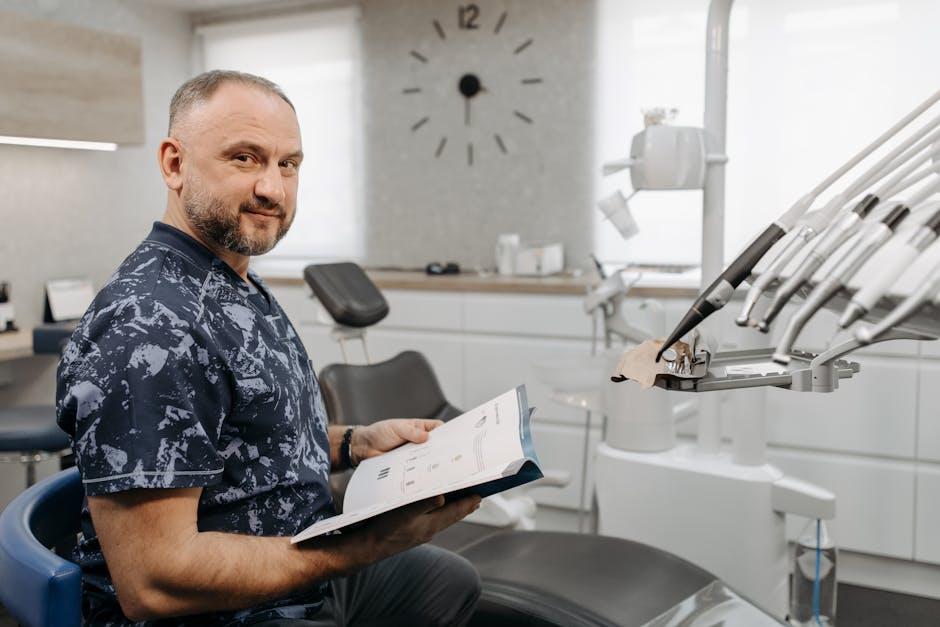As our beloved furry companions age, their needs evolve, and one area that often requires extra attention is their dental health. Just like us, senior pets can face a range of oral health challenges that can impact their overall well-being. Imagine a world where every wag of the tail and gentle purr is accompanied by a healthy, happy smile. In this article, we’ll explore essential dental care tips to ensure your aging pet enjoys a lifetime of comfort and joy. So, grab a cozy spot, and let’s dive into the heartwarming journey of maintaining those pearly whites for our cherished senior friends.
Understanding the Unique Needs of Senior Pet Dental Health
Aging pets, much like their human counterparts, face a unique set of dental challenges. As our furry companions grow older, their teeth and gums require extra attention and care. Senior pets are more prone to dental issues such as periodontal disease, tooth decay, and oral infections, which can significantly affect their overall well-being. To ensure your beloved pet enjoys a comfortable and healthy life, it’s essential to recognize and address these specific needs.
- Regular Dental Check-ups: Frequent veterinary visits are crucial for monitoring and maintaining your pet’s dental health. A professional cleaning can prevent plaque buildup and detect issues early.
- Soft Diet Adjustments: Consider offering softer foods to ease any discomfort from chewing hard kibble, which can exacerbate dental problems.
- Daily Oral Hygiene: Incorporate gentle brushing into your pet’s routine to remove plaque and freshen breath. Use a pet-friendly toothbrush and toothpaste.
- Chew Toys: Provide safe, vet-approved chew toys that help clean teeth and massage gums without causing damage.
Understanding these needs and adapting your care routine can make a world of difference in preserving your senior pet’s oral health and ensuring they continue to thrive in their golden years.

Gentle Cleaning Techniques for Aging Pets Teeth
As our furry companions age, their dental care needs a gentle touch. Prioritizing their comfort while maintaining oral hygiene is essential. Start with a soft-bristled toothbrush designed for pets. This ensures a delicate approach that won’t irritate sensitive gums. Using a pet-friendly toothpaste with flavors like poultry or beef can make the experience more enjoyable for them.
Incorporate routine checks to spot any signs of discomfort or dental issues early. Look for changes such as bad breath, drooling, or reluctance to eat. Consider these gentle techniques:
- Use a damp cloth to softly wipe their teeth and gums.
- Offer dental chews that are specifically designed for older pets.
- Introduce water additives that promote oral health without the need for brushing.
Remember, patience and consistency are key. Your senior pet will appreciate the extra care, and you’ll enjoy more snuggle time with their fresh, healthy smiles.

Nutrition and Supplements for Stronger Senior Smiles
Ensuring your senior pet’s diet is rich in essential nutrients is a cornerstone of maintaining their dental health. A balanced diet not only supports overall wellness but also strengthens gums and teeth. Look for foods that are high in calcium and phosphorus, as these minerals are vital for bone and dental strength. Including crunchy kibble can also help naturally clean teeth by reducing plaque buildup.
In addition to a nutritious diet, consider incorporating supplements that specifically target oral health. Some beneficial options include:
- Omega-3 fatty acids: Known for their anti-inflammatory properties, these can help soothe gum irritation.
- Coenzyme Q10: Supports gum health and may improve oral tissue condition.
- Vitamin C: Essential for maintaining collagen and connective tissues in the gums.
Always consult with your veterinarian before introducing any new supplements to ensure they align with your pet’s specific health needs.

Recognizing Warning Signs and When to Seek Veterinary Care
As our beloved pets age, it’s crucial to be vigilant about changes in their oral health. Spotting the warning signs early can make a significant difference in their comfort and quality of life. Look out for symptoms such as:
- Bad breath that persists despite regular brushing
- Red, swollen, or bleeding gums
- Difficulty eating or a sudden preference for soft foods
- Excessive drooling or pawing at the mouth
- Loose or missing teeth
If you notice any of these indicators, it’s time to consult your veterinarian. Early intervention can prevent more serious issues and ensure your furry friend continues to thrive. Regular check-ups are key, so schedule them at least twice a year to stay ahead of potential problems.


































